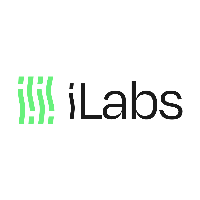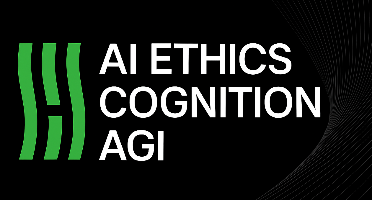
Innovations Labs
Project OwnerHost Company
DEEP Connects Bold Ideas to Real World Change and build a better future together.
Coming Soon
This proposal outlines the development of a novel, modular, and extensible motivation framework for Artificial General Intelligence (AGI) architectures. We want to directly addresses the critical need for ethically aligned AGI by integrating a specific modulation layer focused on safeguarding human cognitive abilities. Drawing upon neuroscience principles of memory and learning, alongside mathematical models of AI-human cognitive interaction, this framework will guide AGI motivations to foster balanced engagement, prevent over-reliance, and ultimately preserve and enhance human cognitive sovereignty.
Develop a modular and extensible framework for integrating various motivational systems into AGI architectures, supporting both human-like and "alien digital" intelligences. This could be done as a highly detailed and precise specification, or as a relatively simple software prototype with suggestions for generalization and extension. Bids are expected to range from $15,000 - $30,000.
Personnel (Research & Design): $4,000 USD (Covers team member time dedicated to in-depth research, literature review, framework conceptualization, architecture design, and documentation.) Tools & Resources: $740 USD (Includes access to relevant academic databases, research papers, collaboration software, and potentially initial prototyping tools for conceptual visualization.) Contingency: $1,000 USD (A small buffer for unforeseen research costs or minor adjustments to the design phase.)
Okay, here's a breakdown of the "Deliverable Description" and "Success Criteria" for Milestone 1, drawing from the context you've provided: Milestone 1: Thorough Research Plan and Framework Design Deliverable Description: The primary deliverable for this milestone is a comprehensive and detailed document package that lays the theoretical and architectural foundation for the "Ethical AGI Motivation for Cognitive Preservation" framework. This package will include: A Detailed Research Plan outlining the specific research questions, methodologies, and literature to be reviewed concerning AGI motivation, ethical AI, and human cognitive preservation. This plan will specify how the team's prior research and expertise will be integrated. A Framework Design Document that specifies: The modular architecture of the core AGI motivation system, including components for goal setting, prioritization, and resource allocation. The detailed design of the Ethical Modulation Layer, with a clear explanation of how neuroscience principles and mathematical models will inform its functionality. This will include: Specific ethical rules and incentives to be implemented. Mechanisms for integrating these rules with the core motivation system. Detailed use case scenarios for chatbot and virtual agent applications, illustrating how the framework will function. An agile breakdown of tasks with a project timeline for subsequent milestones.
$5,740 USD
success_Completeness: The Research Plan and Framework Design Document are comprehensive and cover all necessary aspects of the project. Clarity: The documents are clear, well-organized, and easily understandable by both AI developers and researchers. Rigor: The framework design is grounded in sound theoretical principles from neuroscience, cognitive science, and ethical AI research. Feasibility: The proposed framework is feasible to implement within the project's scope and resources. Ethical Alignment: The Ethical Modulation Layer demonstrates a strong and well-defined approach to promoting human cognitive preservation. Integration Readiness: The framework design is suitable for integration with Hyperon components (ECAN, DAS, MeTTa). Detailed Use Cases: The use case scenarios provide a clear and detailed understanding of how the framework will function in practice. Timeline Adherence: The agile breakdown of tasks and project timeline are realistic and achievable.criteria_1
Personnel (Development & Testing): $8,000 USD (Covers team member time for coding the core motivation framework, implementing the ethical modulation layer, and conducting initial testing in the defined use cases.) Computational Resources: $1,480 USD (Includes costs for accessing necessary computing infrastructure, cloud services for prototyping, and potential API access for integration testing.) Software & Libraries: $1,000 USD (Allocation for specific software licenses or libraries that might be required for the implementation and testing phases.) Contingency: $1,000 USD (Buffer for potential development complexities or additional testing requirements.)
Deliverable Description: The primary deliverable for this milestone is a functional, albeit preliminary, implementation of the "Ethical AGI Motivation for Cognitive Preservation" framework, along with initial testing results. This will include: A Code Implementation of the core AGI motivation system and the Ethical Modulation Layer. This implementation should cover the key components and mechanisms defined in the Milestone 1 Framework Design Document. Preliminary Testing Results from applying the implemented framework in simplified versions of the chatbot and virtual agent use cases. These tests will focus on demonstrating the basic functionality of the ethical modulation rules and their impact on AGI behavior. An Initial Testing Report analyzing the results, highlighting successes, limitations, and areas for improvement. This report will also include a comparison against any relevant baseline benchmarks (if applicable).
$11,480 USD
Milestone 2 will be considered successful if the following criteria are met: Functional Implementation: The core motivation system and Ethical Modulation Layer are implemented and functional, demonstrating the key design principles from Milestone 1. Ethical Rule Enforcement: The implemented Ethical Modulation Layer demonstrably influences AGI behavior in the preliminary use cases, enforcing the defined ethical rules related to cognitive preservation. Use Case Demonstration: The chatbot and virtual agent prototypes showcase the framework's ability to adjust AGI motivations and interactions in a way that aligns with the ethical guidelines. Testing Rigor: The preliminary testing is conducted systematically and covers the core functionality of the framework. Clear Reporting: The Initial Testing Report provides a clear and comprehensive analysis of the testing results, including identified limitations and future development needs. Code Quality: The code implementation is well-structured, documented, and follows coding best practices.
Personnel (Final Development, Documentation & Demonstration): $7,500 USD (Covers time for finalizing the implementation, creating comprehensive documentation, preparing demonstration materials, and writing the final report.) Platform & Hosting (Demonstration): $980 USD (Costs associated with hosting the demonstration (if web-based), video creation for showcasing the framework, or any necessary presentation tools.) Open-Source Contribution & Community Engagement: $1,000 USD (Allocation for packaging the code for open-source release, creating community-facing documentation, and potential outreach efforts.) Contingency: $2,000 USD (A larger buffer for potential final stage complexities, report revisions, or unexpected demonstration requirements.)
The primary deliverable for this milestone is the fully finalized and documented "Ethical AGI Motivation for Cognitive Preservation" framework, along with a comprehensive demonstration of its capabilities. This will include: A Final Code Implementation: This is the polished and production-ready version of the framework, incorporating feedback and improvements from Milestone 2 testing. It should be thoroughly documented and adhere to software engineering best practices. A Final Report: This comprehensive report will detail the entire project lifecycle, including: A summary of the research and design process. A detailed description of the final framework implementation. A thorough performance analysis of the framework, including quantitative and qualitative evaluation metrics. A discussion of limitations, challenges encountered, and future research directions. Demonstration Materials: These materials will showcase the framework's functionality in the chatbot and virtual agent use cases. This may include: A live demonstration (if feasible). A recorded video demonstration. Interactive simulations. Open-Source Release Package: All code, documentation, and resources necessary for others to use and extend the framework. This will include: Well-structured code repository. Comprehensive user documentation. Developer documentation. Licensing information.
$11,480 USD
Milestone 3 will be considered successful if the following criteria are met: Complete and Stable Implementation: The final code implementation is complete, stable, and ready for deployment. Comprehensive Documentation: All documentation (user, developer, and project report) is accurate, thorough, and easy to understand. Effective Demonstration: The demonstration materials clearly and convincingly showcase the framework's functionality and its ability to achieve the project's goals. Performance Validation: The performance analysis in the Final Report provides strong evidence that the framework meets the success criteria defined in earlier milestones. Open-Source Readiness: The open-source release package is complete, well-organized, and enables easy adoption and extension by the community. Ethical Effectiveness: The framework demonstrably promotes ethical AGI behavior related to cognitive preservation in the use case demonstrations.
Reviews & Ratings
Please create account or login to write a review and rate.
Check back later by refreshing the page.
© 2025 Deep Funding
Join the Discussion (0)
Please create account or login to post comments.